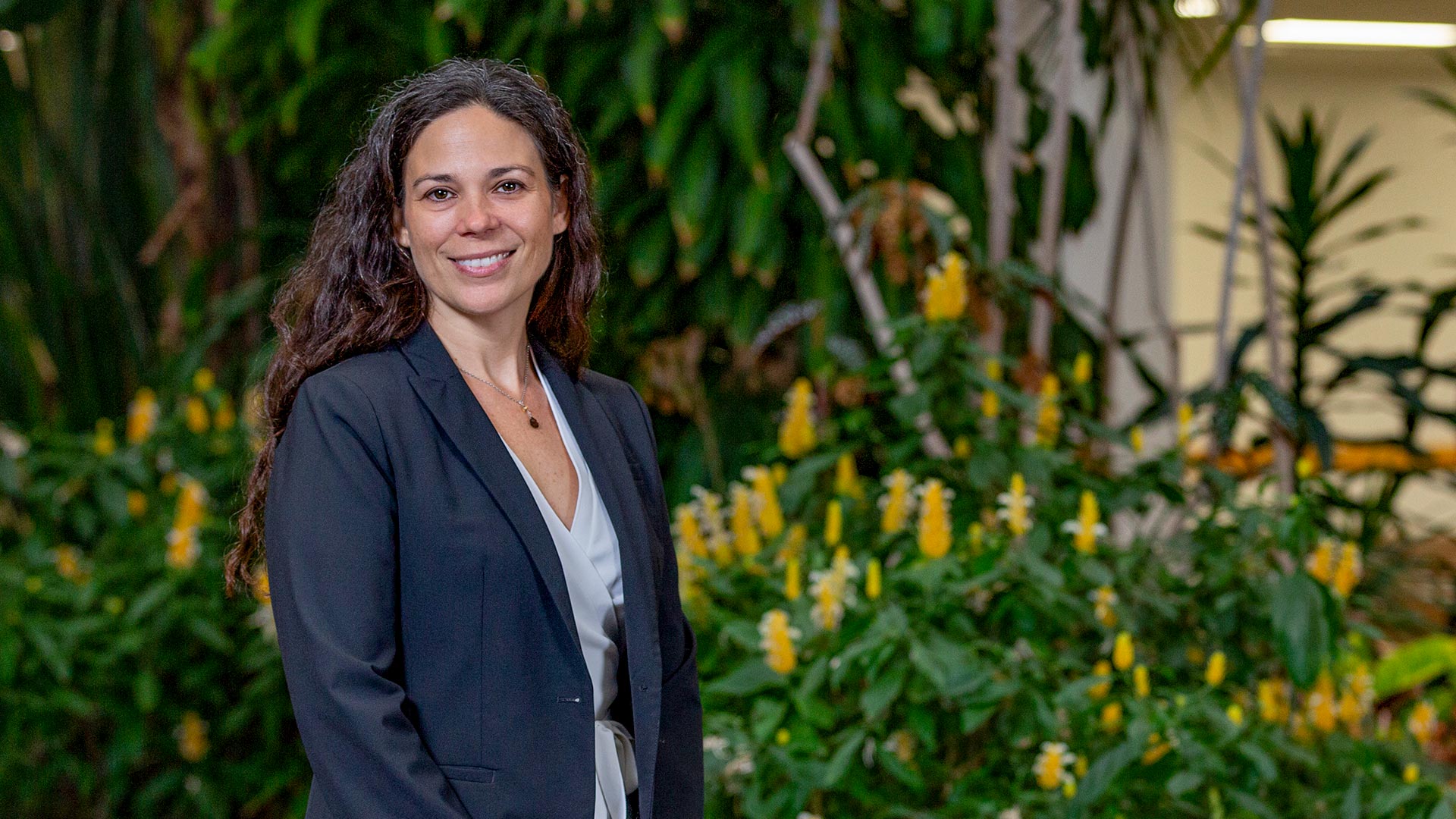- Future Students
- How to Apply
- Visit UHCL
- Admitted Students
- Tuition, Costs and Aid
- Degrees and Programs
- Contact Admissions
- Current Students
- Class Schedule
- Academic Calendar
- Advising
- Events
- Library
- Academic Resources and Support
- Student Services and Resources
- Alumni
- Lifetime Membership
- Alumni Events
- Update Your information
- Awards and Recognitions
- Give to UHCL
New director to prioritize research, sustainability, development
April 22, 2021 | UHCL Staff

For University of Houston-Clear Lake's new Executive Director of the Institute for Human and Planetary Sustainability Megan Topham, sustainability isn't just about addressing environmental issues. It's about supporting and funding world-leading projects that are aligned with social, economic, environmental and educational goals.
"With the many challenges we have faced as a society, especially during the past year, it is more important than ever to connect, innovate, and develop equitable solutions," Topham said. "People traditionally have thought that 'sustainability' is only about the environment, but it's so much more than that. We also have to talk about education and the social impact, as well as ensuring solutions make economic and business sense in order to achieve longevity."
She said one of her priorities is to help establish relationships and partnerships in the community that will help secure funding to make IHAPS sustainable.
"We want IHAPS to serve as a conduit between community, industry and university talent and expertise," she said. "We hope to build and strengthen partnerships and relationships that generate opportunities for students and faculty, including research, internships, and community outreach. I'm very excited about working with (Associate Vice President of Strategic Information Initiatives and Technology) Evelyn Miralles and collaborating on how to develop IHAPS and a dynamic team."
Topham was an assistant professor of public administration and real estate development at Nova Southeastern University in Fort Lauderdale, Florida directly prior to coming to UH-Clear Lake, and was campus director of University of Texas at Arlington in Fort Worth, a satellite campus for The University of Texas at Arlington, for 17 years prior. She holds a doctorate in urban planning and public policy, sustainability and a Master of Science in Information Systems.
"Most of my research has been within the realm of real estate development, sustainability, and public health," she said. "Sustainability is embedded in everything I do — including my research and teaching, my entrepreneurial endeavors, community outreach efforts, and throughout my business practices and strategies."
She said that UHCL is already doing a lot in terms of sustainability, and that IHAPS would serve to enhance these efforts by increasing efficiencies and providing a platform for collecting, measuring, and sharing our successes and lessons learned.
"I'm looking forward to advancing a scholarship of practice in sustainability where practitioners and scholars work together as partners," she said.
Miralles said IHAPS' goals are embedded in four domains: economic, social, environmental and education.
"The Institute's mission is to provide support for projects that consider sustainability in a more holistic way," Miralles said. "We are going to work in an interdisciplinary way, taking requests and calls for projects aiming to solve issues in southeast Texas and the world. Our goal is to provide new ways of teaching sustainable living."
Miralles said that no student will have a future, and education cannot continue unless we see impacts on all levels. "Dr. Topham will execute the Institute's goals, with the intent of bringing all the colleges in the university together," she said.
IHAPS will be advised by an independent board of directors and managed by Topham. Its goals are directly related to UHCL's vision, mission, values and strategic plan.
"A key component of our new vision is to engage in innovative research, and it involves community partnerships, both of which are related to IHAPS' activities and scope," said UHCL's Chief Strategy Officer Kevin Wooten. "Most importantly, IHAPS is directly built upon UHCL's core value of sustainability, as it relates to stewardship over natural and social resources. It will be a crucial driver in the future success of UHCL."
Learn more about IHAPS online.






